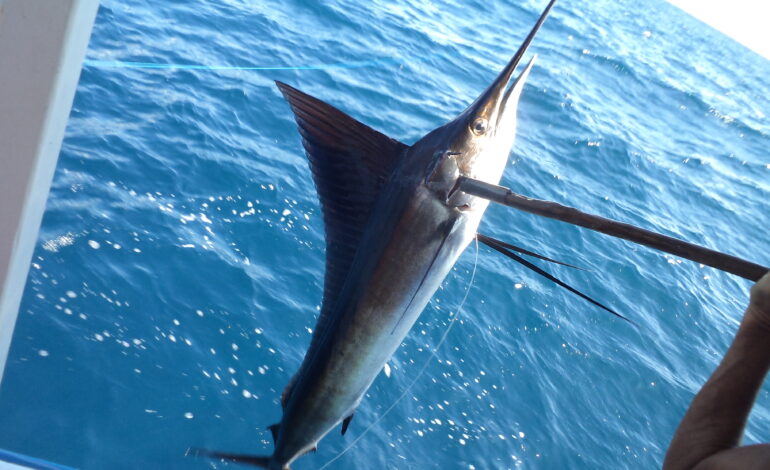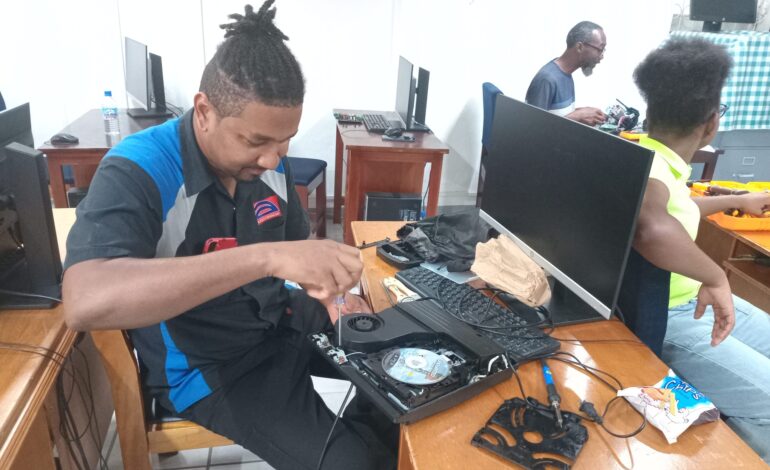
25 invited experts from 20 member countries are set to attend the high-level meeting in Panama City, Panama
April 28, 2025 – Bridgetown, Barbados – Over 32 invited experts from 20 countriesincluding Barbados, Belize, Dominica, Grenada, Jamaica, Saint Kitts and Nevis, Saint Lucia, Saint Vincent and the Grenadines, and Trinidad and Tobago are set to attendthe first Technical Meeting and Workshop of the Food and Agriculture Organization of the United Nations (FAO)/Western Central Atlantic Fishery Commission (WECAFC) and the International Commission for the Conservation of Atlantic Tunas (ICCAT) from May 7-8, 2025 in Panama City, Panama. This is the first formal meeting between the two organizations since signing the Exchange of Letters of Agreement in March 2024 aimed to further coordinate activities, optimize resource utilization, and prevent duplication of effort. Through the agreement, the organizations will strive to improve cooperation in areas such as data collection for fisheries management and exchanging vital information on Illegal, Unreported, and Unregulated (IUU) fishing activities within their respective convention areas.
The workshop will outline objectives and logistics, establishing the framework for discussions on enhancing fisheries data reporting, while presentations from the organizations will address the current state of fisheries statistics data collection and reporting, with an emphasis on the strategies used by ICCAT and WECAFC on reporting obligations. While the present standards that ICCAT and WECAFC have already put into place will be discussed, as well as the ongoing efforts and conversations surrounding the adoption of new standards, an overview of the Coordinating Working Party on Fishery Statistics standards and their harmonization across the organizations will be a primary emphasis of the workshop, as these discussions will offer both organizations avenues for future collaboration and advancement.
The Caribbean lacks sufficient fishing data to underpin sustainable fisheries management and well-informed decision-making. Numerous facets of the fisheries industry, including catch, fishing effort, biological data, the effects of climate change, and socioeconomic statistics, have data gaps. Therefore, the ICCAT project which supports regional data gathering and reporting in the Caribbean will be prominently featured during the workshop, with anticipated updates on the accomplishments and ongoing efforts to be presented to the delegates. Both Mr Camille Manel, ICCAT Executive Secretary and Mrs Yvette Diei Ouadi, WECAFC Secretary, will present and discuss how their respective organizations could assist in filling data gaps and ensuring timely and accurate data is available for effective fisheries management. She noted that the workshop comes on the heels of World Tuna Day, which is celebrated annually on May 2, aiming to raise awareness about the importance of tuna, promote sustainable fishing practices, and encourage the responsible management of tuna stocks.
In speaking about the importance of the collaboration and the workshop, Mr Camille Manel, ICCAT Executive Secretary stated, “In perfect coherence with its commitment to strengthening its cooperation with the WECAFC, expressed through the exchange of letters, ICCAT is pleased to host this first joint workshop to address the crucial issue of improving the communication of fisheries data on tuna fisheries, that is essential to the provision of scientific advice and formulation of relevant conservation and management measures, within an inclusive process that ensures the active participation of the States of the Caribbean Region”.
Against the background of growing concerns about food security in the Caribbean, WECAFC Secretary, Mrs Yvette Diei Ouadi, stated, “The opportunity of this first joint workshop cannot be overestimated, as reliable and timely data and information are critical to inform our common response to newly emerging issues in the realm of the conservation of marine biodiversity and sustainability of fisheries resources. I seize the opportunity to thank the United States of America for the financial support of this event”.
The workshop will conclude with the development of a concrete plan of action to address the identified data gaps within both organizations. This action plan will serve as a roadmap for future initiatives to ensure continued progress in the region’s fisheries management.





